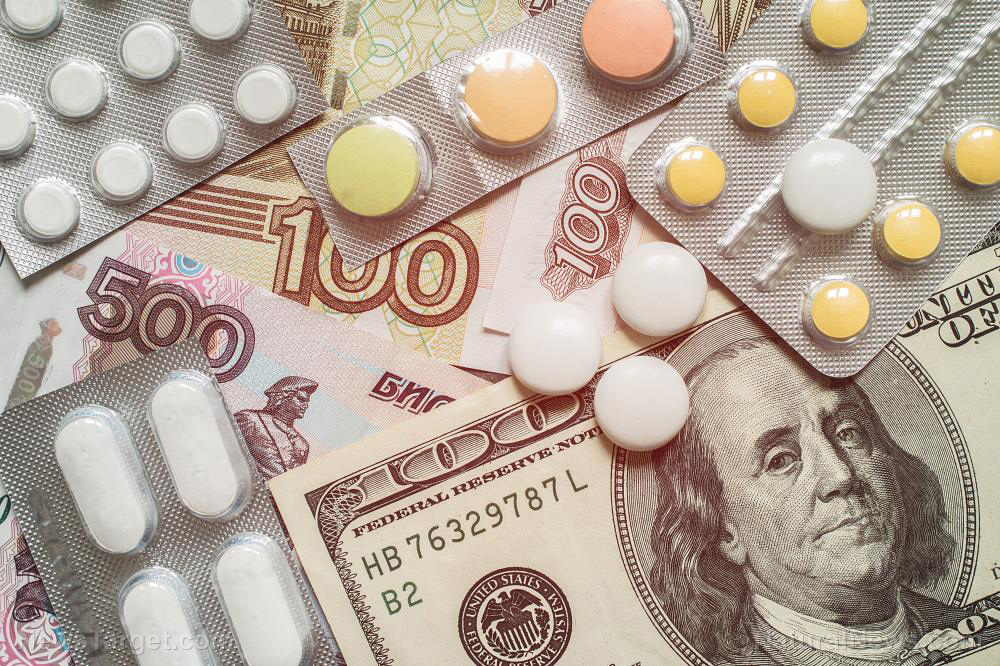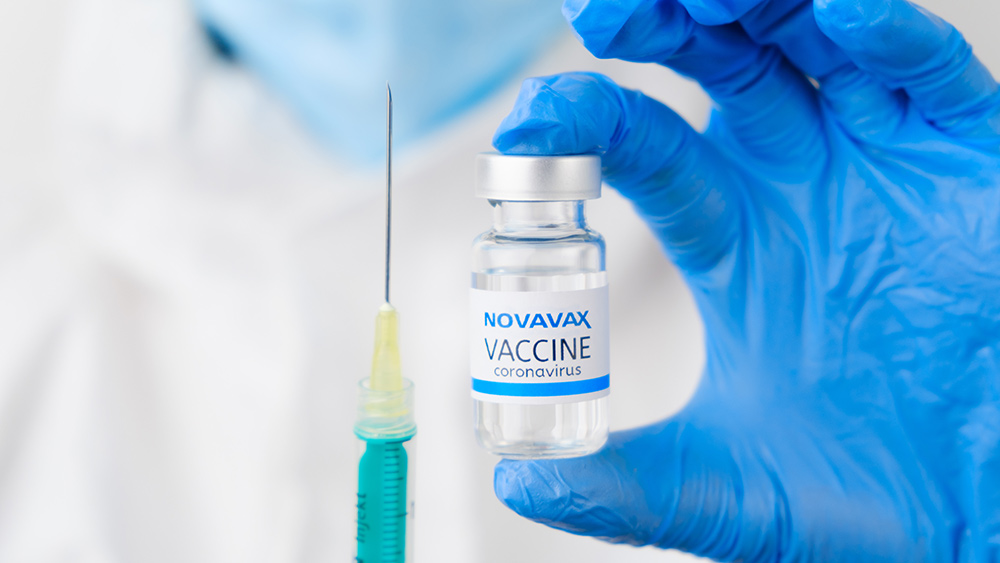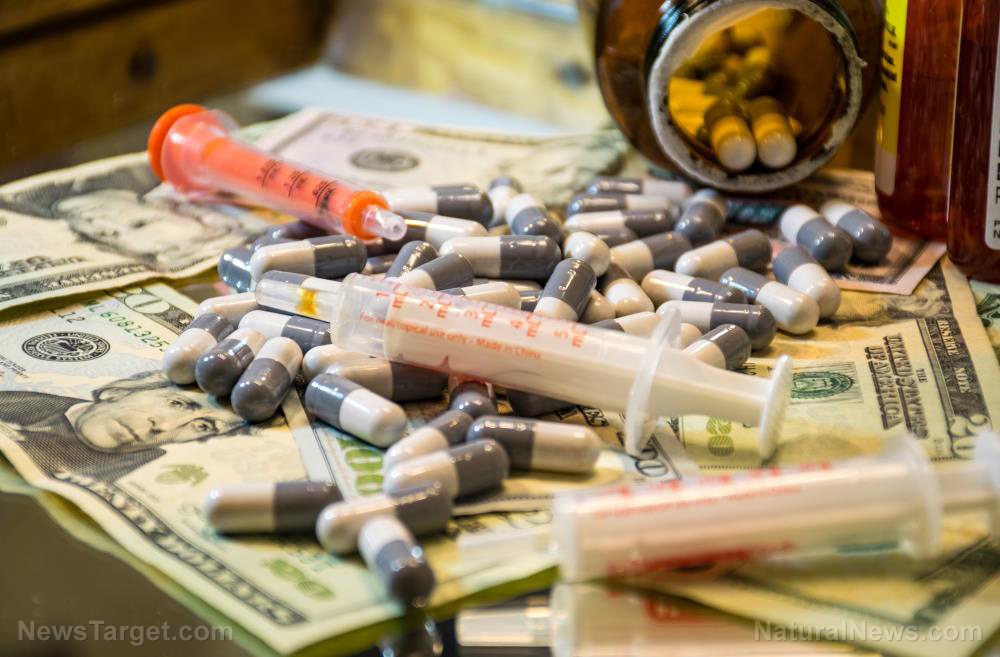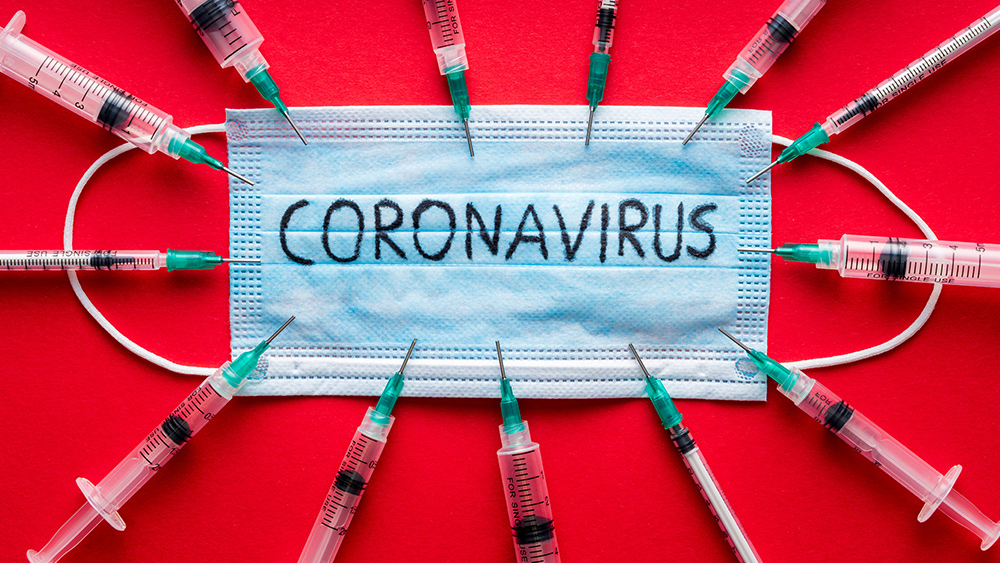Corruption in the midst of pandemic: Government to pay $1.2B for $30M-worth of treatment courses of new covid drug
10/14/2021 / By Zoey Sky

Don’t expect Big Pharma companies to stop developing new treatments for the Wuhan coronavirus (COVID-19). Not when they can turn a $17.74 manufacturing price into $712 selling price.
Merck’s molnupiravir is the latest alleged answer to ending the pandemic and reports say it can cut hospitalizations and deaths of unvaccinated people infected with coronavirus by at least 50 percent. And unlike vaccines, molnupiravir can simply be taken at home for a five-day course of treatment.
But the government inexplicably signed a contract back in June that will pay Merck over $1.2 billion for 1.7 million courses of the medication – $712 per course. The transaction will take place after molnupiravir receives emergency use authorization from the Food and Drug Administration (FDA).
Big profits for Big Pharma
Molnupiravir is an antiviral drug originally developed by Emory University to treat horses infected with Venezuelan equine encephalitis virus (VEEV). It has received a $10 million grant from the Department of Defense (DOD) and $19 million from the National Institutes of Health (NIH).
Emory University passed the patent of molnupiravir to Ridgeback Biotherapeutics, which then sold it to Merck.
A report from researchers with the Harvard School of Public Health has revealed that the manufacturing cost for molnupiravir is only around $17.74 for a five-day course of treatment. (Related: US government pays Merck $712 for 5-day molnupiravir course that only costs $17.74 to manufacture.)
Based on that price, 1.7 million courses will only be worth around $30 million.
The huge mark up is made possible by of a piece of legislation passed back in 1980, which allows universities to sell patents to inventions funded with federal money to non-profit organizations and small businesses, but not to major corporations.
To bypass this hurdle, small businesses like Ridgeback act as middlemen so profitable pharmaceuticals developed with tax dollars can easily be passed on to corporations like Merck.
Despite President Jimmy Carter’s objections, Senators Birch Bayh and Bob Dole passed the Patent and Trademark Law Amendments Act in 1980. It was initially shot down and was only passed during the lame duck session by being attached to must-pass legislation.
Bayh-Dole Act and March-in Authority
Now often referred to as the Bayh-Dole Act, it benefits industry and trade groups who are worried about a provision of the law called “March-in Authority.”
“March-in” allows the federal government to prevent patents from being passed around and sold at an exorbitant amount. The federal government can then take back the patent and assign it to other manufacturers.
There’s also the option to license it to third parties that will make the drug available at a reasonable cost.
In the last year of the Donald Trump administration, then-Secretary of Commerce Wilbur Ross stripped the “March-in” provision out of the Bayh-Dole Act so Big Pharma could charge the U.S. government as much as it wanted.
At the same time, Big Pharma companies are buying off members of Congress to encourage an end to “March-in” and to stop all efforts to regulate the cost of drugs or let Medicare negotiate prices.
Former President George W. Bush tried and failed to entirely privatize both Social Security and Medicare during his time. Now, the provision drains billions every month from the Medicare fund.
Big Pharma has been using drugs to make a profit off of hard-working Americans and to make Big Pharma’s executives and shareholders even richer. Unless Americans make a stand, Big Pharma will continue to profit while the average workers will be forced to get vaccinated or take medication if they don’t want to lose their job.
Visit BigPharmaNews.com to read more articles about how Big Pharma is cashing in on various “cures.”
Sources include:
Tagged Under: alternative medicine, antiviral drug, big government, Big Pharma, conspiracy, coronavirus treatment, corruption, covid-19 pandemic, deception, Merck, molnupiravir, pandemic, pharmaceutical fraud, traitors, Wuhan coronavirus
RECENT NEWS & ARTICLES
COPYRIGHT © 2017 DRUG CARTELS NEWS



















